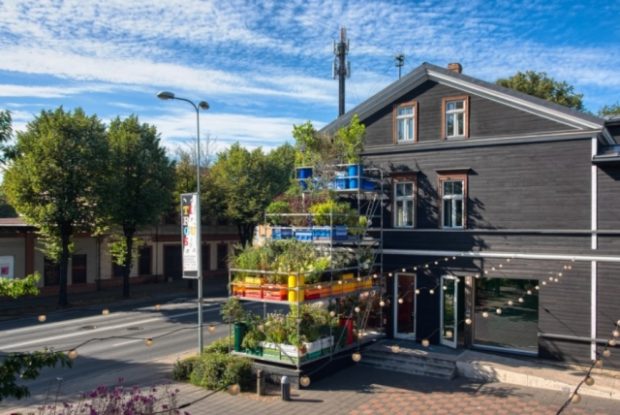
A vertical garden in Latvia. Image: courtesy of Annvil Guarden
Heavy metals? Nanoparticles? An architectural project was recently launched in Latvia to measure the impact of the urban environment on plants, notably the ones that we consume.
These vertical gardens are four meters high. They are called “G(u)arden,” and were conceived by architecture firm Annvil. Installed in Riga, the Latvian capital, their structure is made of local plants chosen from throughout this small country, where roughly two million people live.
Designers, urban planners and environmental scientists worked jointly on this project. Its purpose is to help them understand and measure the presence of pollutants in fruits and vegetables that grow in city centers.
What is the microbiological composition of the air and water that feed the plants? That’s what the experiment hopes to show, in an environment beset by road traffic pollution.
Next year, a series of other urban garden experiments will flourish throughout the country, in cities like Jūrmala, Valmiera, Cēsis, Liepāja and Kuldīga. NVG
RELATED STORIES:
Mushrooms make better packaging than recycled cardboard
Tasty alternatives to fashionable but polluting foods